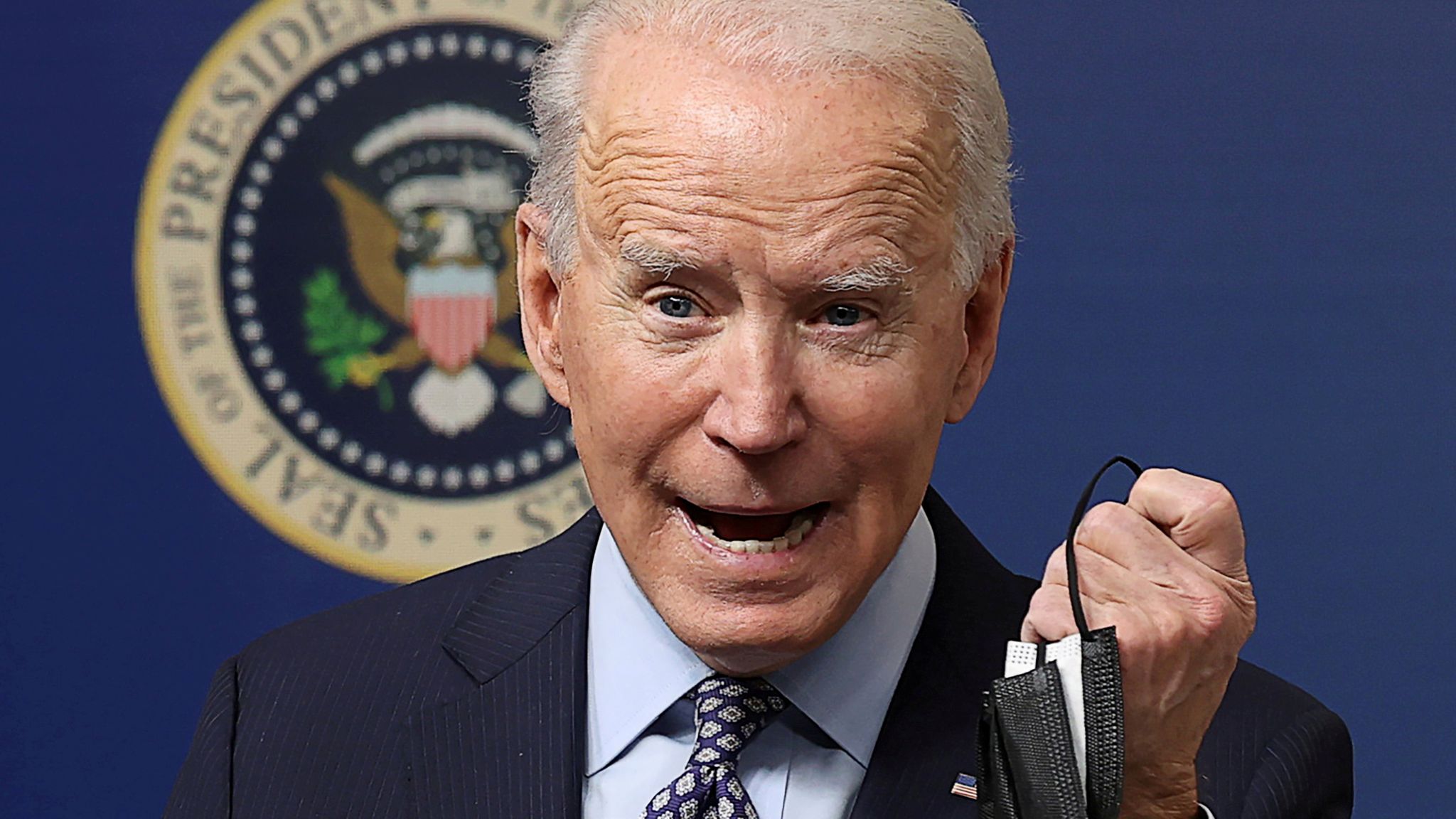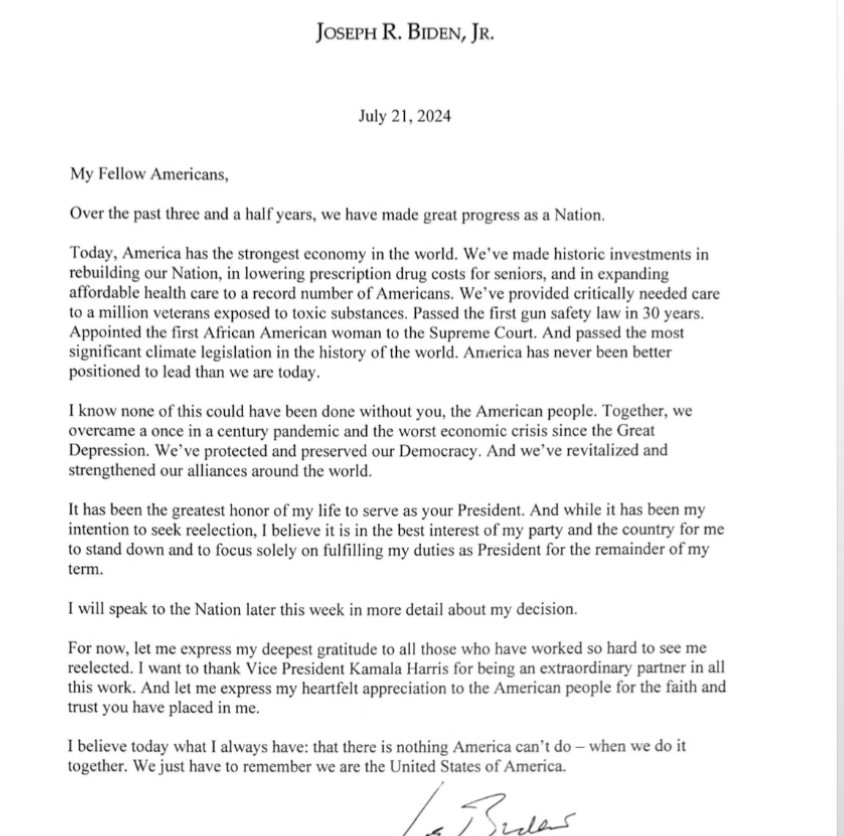BREAKING: Joe Biden Officially Steps Down From Presidential Race
21.07.2024 20:56 1 min. read Alexander Stefanov
In a surprising development, the US president has announced he will not seek a second term, sending the election into uncharted territory.
As a result, the Democratic Party must now select a new candidate to face Republican nominee Donald Trump in the November election, a contest already characterized by tension, division, and even an assassination attempt.
This announcement follows months of speculation regarding President Biden’s age and fitness for office, exacerbated by several high-profile gaffes and a poor debate performance.
Despite his insistence that he was the best candidate to defeat Trump, there were increasing calls within his own party for him to step aside.
Biden recently tested positive for COVID-19 while on the campaign trail, experiencing mild symptoms including general malaise. Attention now shifts to who will succeed him, with the selection likely to take place at the Democratic National Convention in August.
The presumptive Democratic nominee is now Vice President Kamala Harris: Online chatter began to focus on her taking Biden’s place on the ticket after the president’s disastrous June 27 debate.
-
1
Wall Street Veteran Warns Tariffs Could Disrupt AI-Driven Market Rally
05.06.2025 12:00 1 min. read -
2
Circle Tops $1.1B in IPO as Demand Surpasses Expectations
05.06.2025 16:00 1 min. read -
3
Elon Musk and Donald Trump Clash in Fiery Policy Fallout
06.06.2025 8:00 2 min. read -
4
How One Musician’s $3M NFT Success Turned Into a Costly Tax Lesson
08.06.2025 19:00 1 min. read -
5
California Targets Dormant Crypto With New Custody Proposal
05.06.2025 19:00 2 min. read
Circle’s Market Cap Surges Past Its Own Stablecoin
Circle’s explosive entry into public markets has propelled its stock valuation beyond the supply value of its flagship stablecoin, USDC.
Anthony Pompliano Unveils Bitcoin Treasury Giant After Landmark Merger
Investor and entrepreneur Anthony Pompliano is rolling his private outfit, ProCap BTC LLC, into blank-check firm Columbus Circle Capital to form ProCap Financial, a new Nasdaq-listed business built around Bitcoin.
FTX Pushes to Dismiss Billion-Dollar Claim from 3AC
FTX’s legal team has moved to dismiss a $1.53 billion claim filed by Three Arrows Capital (3AC), calling it an exaggerated and baseless attempt to recover losses from risky trading.
FTX Pushes Back Against $1.5B Claim From Defunct Hedge Fund 3AC
FTX’s liquidators have filed a strong objection to a multi-billion-dollar claim by failed hedge fund Three Arrows Capital (3AC), arguing the request is based on exaggerated and misleading figures.
-
1
Wall Street Veteran Warns Tariffs Could Disrupt AI-Driven Market Rally
05.06.2025 12:00 1 min. read -
2
Circle Tops $1.1B in IPO as Demand Surpasses Expectations
05.06.2025 16:00 1 min. read -
3
Elon Musk and Donald Trump Clash in Fiery Policy Fallout
06.06.2025 8:00 2 min. read -
4
How One Musician’s $3M NFT Success Turned Into a Costly Tax Lesson
08.06.2025 19:00 1 min. read -
5
California Targets Dormant Crypto With New Custody Proposal
05.06.2025 19:00 2 min. read



